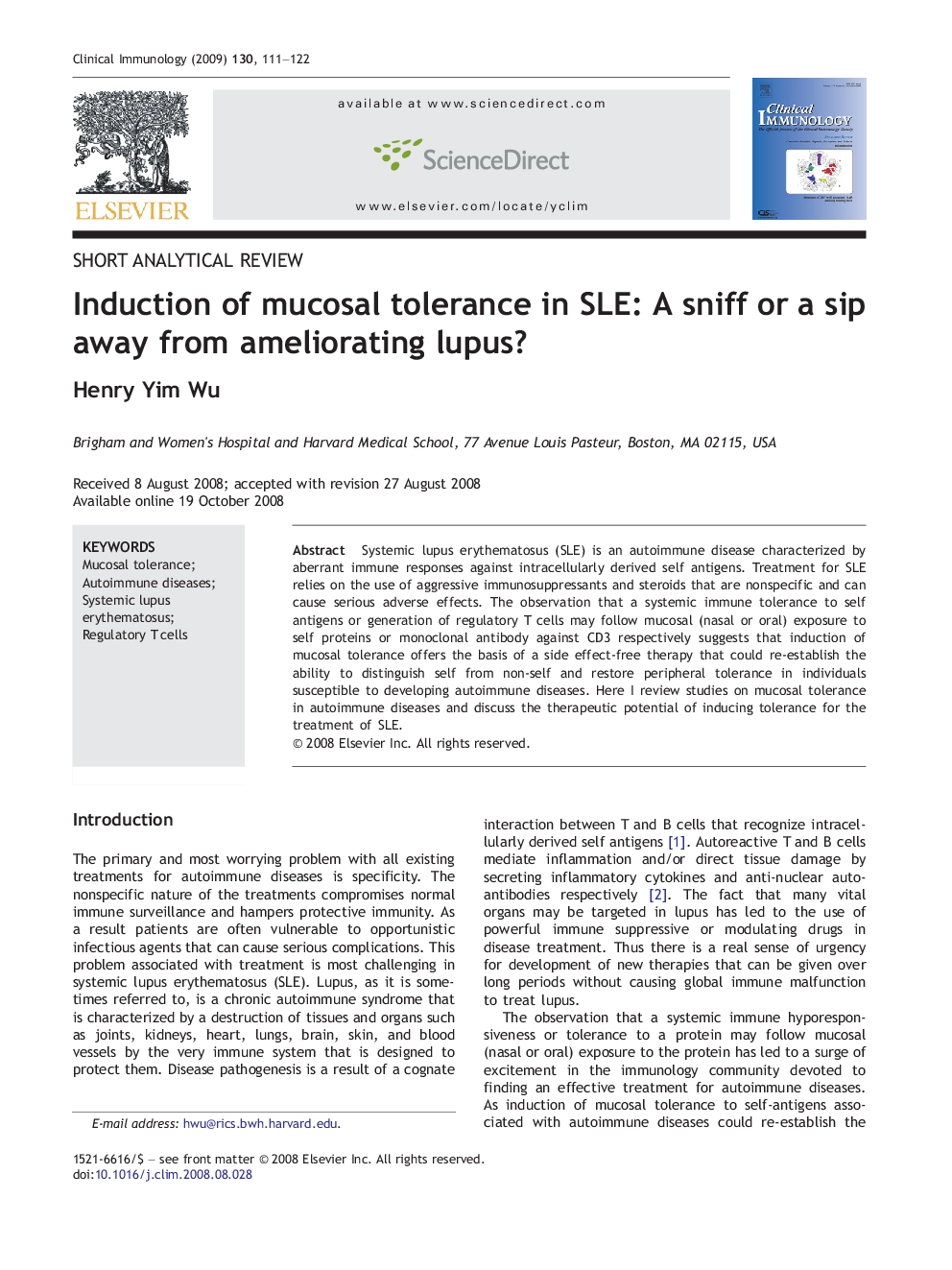| Article ID | Journal | Published Year | Pages | File Type |
|---|---|---|---|---|
| 3258109 | Clinical Immunology | 2009 | 12 Pages |
Abstract
Systemic lupus erythematosus (SLE) is an autoimmune disease characterized by aberrant immune responses against intracellularly derived self antigens. Treatment for SLE relies on the use of aggressive immunosuppressants and steroids that are nonspecific and can cause serious adverse effects. The observation that a systemic immune tolerance to self antigens or generation of regulatory T cells may follow mucosal (nasal or oral) exposure to self proteins or monoclonal antibody against CD3 respectively suggests that induction of mucosal tolerance offers the basis of a side effect-free therapy that could re-establish the ability to distinguish self from non-self and restore peripheral tolerance in individuals susceptible to developing autoimmune diseases. Here I review studies on mucosal tolerance in autoimmune diseases and discuss the therapeutic potential of inducing tolerance for the treatment of SLE.
Related Topics
Life Sciences
Immunology and Microbiology
Immunology
Authors
Henry Yim Wu,
